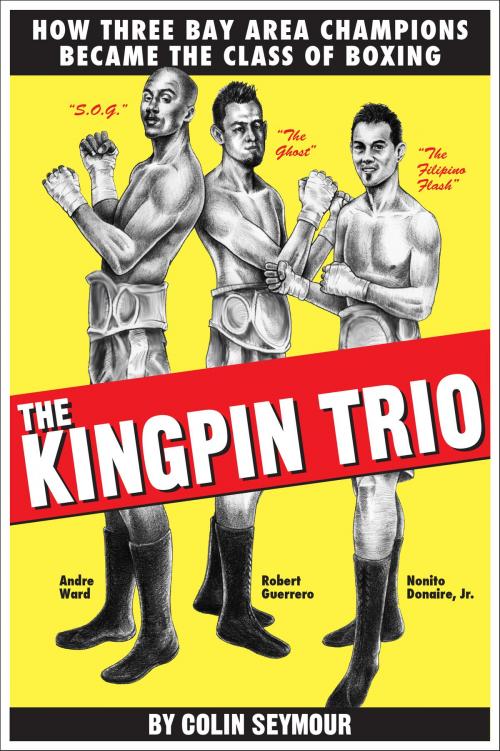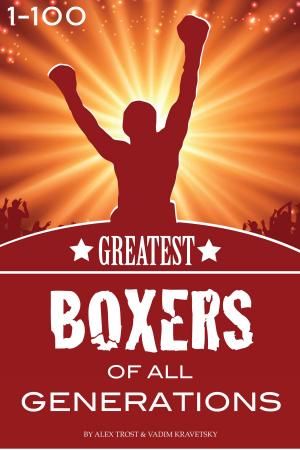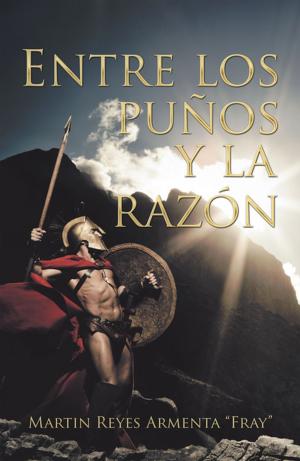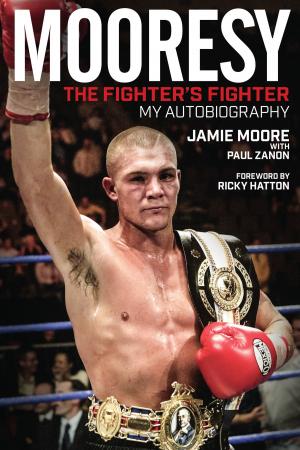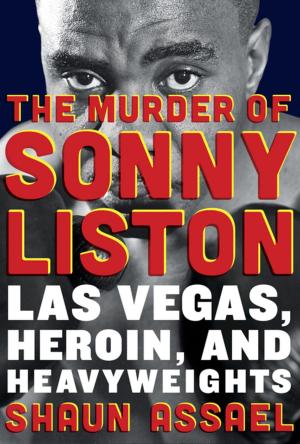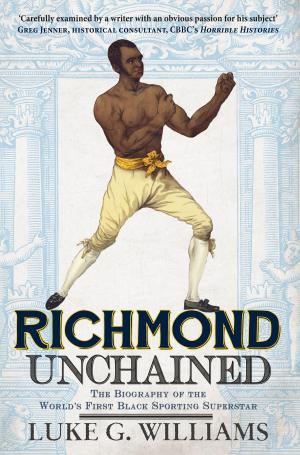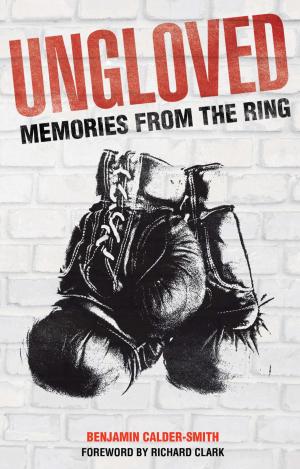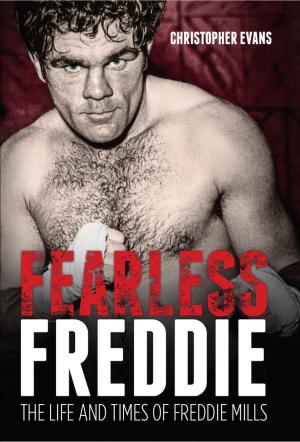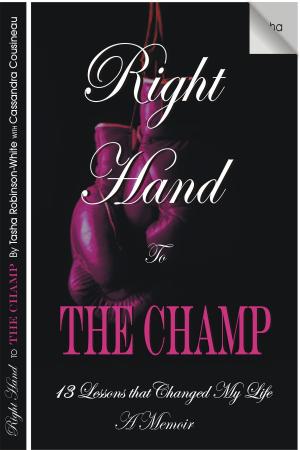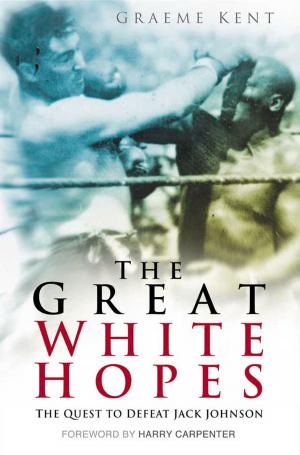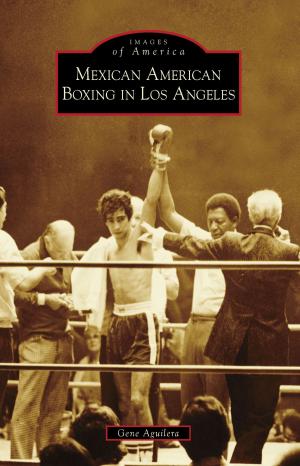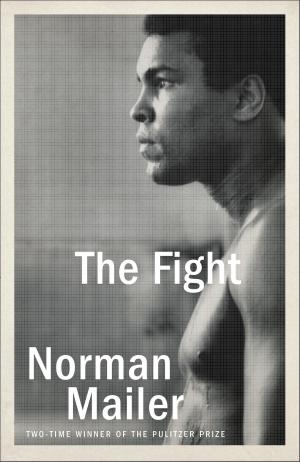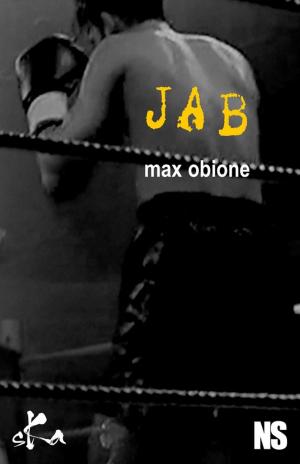| Author: | Colin Seymour | ISBN: | 9781310594632 |
| Publisher: | Colin Seymour | Publication: | September 16, 2014 |
| Imprint: | Smashwords Edition | Language: | English |
| Author: | Colin Seymour |
| ISBN: | 9781310594632 |
| Publisher: | Colin Seymour |
| Publication: | September 16, 2014 |
| Imprint: | Smashwords Edition |
| Language: | English |
By the end of 2012, Bay Area boxers Andre Ward, Nonito Donaire and Robert “The Ghost” Guerrero all were rated among the top 10 fighters in the world, pound for pound, mentioned in the same breath as Manny Pacquiao and Floyd Mayweather Jr.
Not since Northern Californians James J. Corbett and Jim Jeffries were heavyweight champions in the early 1900s had even one Bay Area fighter ascended to quite the level the trio achieved in 2011, when Ward was the world’s fighter of the year, and 2012, when Donaire won the same recognition and Guerrero cracked the top 10.
It became hard to remember that their promising careers were stalling simultaneously four years earlier, in mid-to-late 2008. With the level of media attention accorded them then and their sport declining, the likelihood that all three boyhood training partners would reach full potential was questionable, even though all three were skilled, cerebral fighers who were also wholesome and articulate.
Slowly but surely, one by one, their careers flowered brilliantly, and author-reporter Colin Seymour describes every stage in “The Kingpin Trio.”
The three certainly weren’t anonymous in the fall of 2008, when the author returned his attention to boxing for the first time in nearly a decade. Ward was the new century’s best known amateur when he won an Olympic gold medal in 2004. Donaire became the world’s top flyweight in 2007 with a sensational knockout of fearsome champion Vic Darchinyan. Guerrero, a slick southpaw with a distinctively diabolical look, had held two world titles at 126 pounds and had fought often on national TV.
There was a perception from afar, nonetheless, that Ward and Guerrero, being native Californians, were soft, and it delayed their success. Donaire had a harder-edged reputation because his punching power was often the most dramatic of anyone in boxing’s lower weight classes, but the Philippines native wasn’t perceived as a Bay Area fighter.
An injury sidelined Ward during much of 2008, and changes of promoters kept Guerrero and Donaire inactive several months. It was no time to be gone and therefore forgotten, not with Pacquiao’s improbable move to welterweight and his shockingly easy victory over Oscar De La Hoya hogging the spotlight.
Guerrero was becoming best known for his wife’s arduous but successful battle with an acute form of leukemia. He needed new challenges in the ring.
Donaire began creating a furor in the Philippines when he and his father-trainer parted ways, and it became clear that the cause was friction between the father and the newlywed boxer’s Filipino-America wife.
Slowly but surely, however, promoters starting finding worthy opponents for the Kingpin Trio, and they won 30 and lost none over the next four years. Ward cleaned out the 168-pound division by winning Showtime’s unprecedented Super Six tournament, Donaire scored an impressive bantamweight title-winning knockout on HBO, and Guerrero, beefing up to lightweight and above, started beating well-known fighters and getting his due -- for him especially a long time coming.
Author Seymour spent more time with Donaire than the other two during their rise, but each had an indirect impact on some of the writer’s most memorable experiences while covering the three, including a front-row center press seat for a Donaire fight at Madison Square Garden in New York, a San Francisco television appearance with Guerrero and a video of the author and three relatives singing the Philippines national anthem -- in Tagalog.
It all went down on Examiner.com, where the author’s reports on Pacquiao and others reside, along with plenty of photos.
There were trials and tribulations on that front, too, as a formerly salaried journalist tried to brave a new world that increasingly riled him.
It was a world in which a Web portal in the Philippines became a vital conduit for boxers and their chroniclers alike. The world was becoming flat, but Bay Area boxing reached a pinnacle.
By the end of 2012, Bay Area boxers Andre Ward, Nonito Donaire and Robert “The Ghost” Guerrero all were rated among the top 10 fighters in the world, pound for pound, mentioned in the same breath as Manny Pacquiao and Floyd Mayweather Jr.
Not since Northern Californians James J. Corbett and Jim Jeffries were heavyweight champions in the early 1900s had even one Bay Area fighter ascended to quite the level the trio achieved in 2011, when Ward was the world’s fighter of the year, and 2012, when Donaire won the same recognition and Guerrero cracked the top 10.
It became hard to remember that their promising careers were stalling simultaneously four years earlier, in mid-to-late 2008. With the level of media attention accorded them then and their sport declining, the likelihood that all three boyhood training partners would reach full potential was questionable, even though all three were skilled, cerebral fighers who were also wholesome and articulate.
Slowly but surely, one by one, their careers flowered brilliantly, and author-reporter Colin Seymour describes every stage in “The Kingpin Trio.”
The three certainly weren’t anonymous in the fall of 2008, when the author returned his attention to boxing for the first time in nearly a decade. Ward was the new century’s best known amateur when he won an Olympic gold medal in 2004. Donaire became the world’s top flyweight in 2007 with a sensational knockout of fearsome champion Vic Darchinyan. Guerrero, a slick southpaw with a distinctively diabolical look, had held two world titles at 126 pounds and had fought often on national TV.
There was a perception from afar, nonetheless, that Ward and Guerrero, being native Californians, were soft, and it delayed their success. Donaire had a harder-edged reputation because his punching power was often the most dramatic of anyone in boxing’s lower weight classes, but the Philippines native wasn’t perceived as a Bay Area fighter.
An injury sidelined Ward during much of 2008, and changes of promoters kept Guerrero and Donaire inactive several months. It was no time to be gone and therefore forgotten, not with Pacquiao’s improbable move to welterweight and his shockingly easy victory over Oscar De La Hoya hogging the spotlight.
Guerrero was becoming best known for his wife’s arduous but successful battle with an acute form of leukemia. He needed new challenges in the ring.
Donaire began creating a furor in the Philippines when he and his father-trainer parted ways, and it became clear that the cause was friction between the father and the newlywed boxer’s Filipino-America wife.
Slowly but surely, however, promoters starting finding worthy opponents for the Kingpin Trio, and they won 30 and lost none over the next four years. Ward cleaned out the 168-pound division by winning Showtime’s unprecedented Super Six tournament, Donaire scored an impressive bantamweight title-winning knockout on HBO, and Guerrero, beefing up to lightweight and above, started beating well-known fighters and getting his due -- for him especially a long time coming.
Author Seymour spent more time with Donaire than the other two during their rise, but each had an indirect impact on some of the writer’s most memorable experiences while covering the three, including a front-row center press seat for a Donaire fight at Madison Square Garden in New York, a San Francisco television appearance with Guerrero and a video of the author and three relatives singing the Philippines national anthem -- in Tagalog.
It all went down on Examiner.com, where the author’s reports on Pacquiao and others reside, along with plenty of photos.
There were trials and tribulations on that front, too, as a formerly salaried journalist tried to brave a new world that increasingly riled him.
It was a world in which a Web portal in the Philippines became a vital conduit for boxers and their chroniclers alike. The world was becoming flat, but Bay Area boxing reached a pinnacle.
